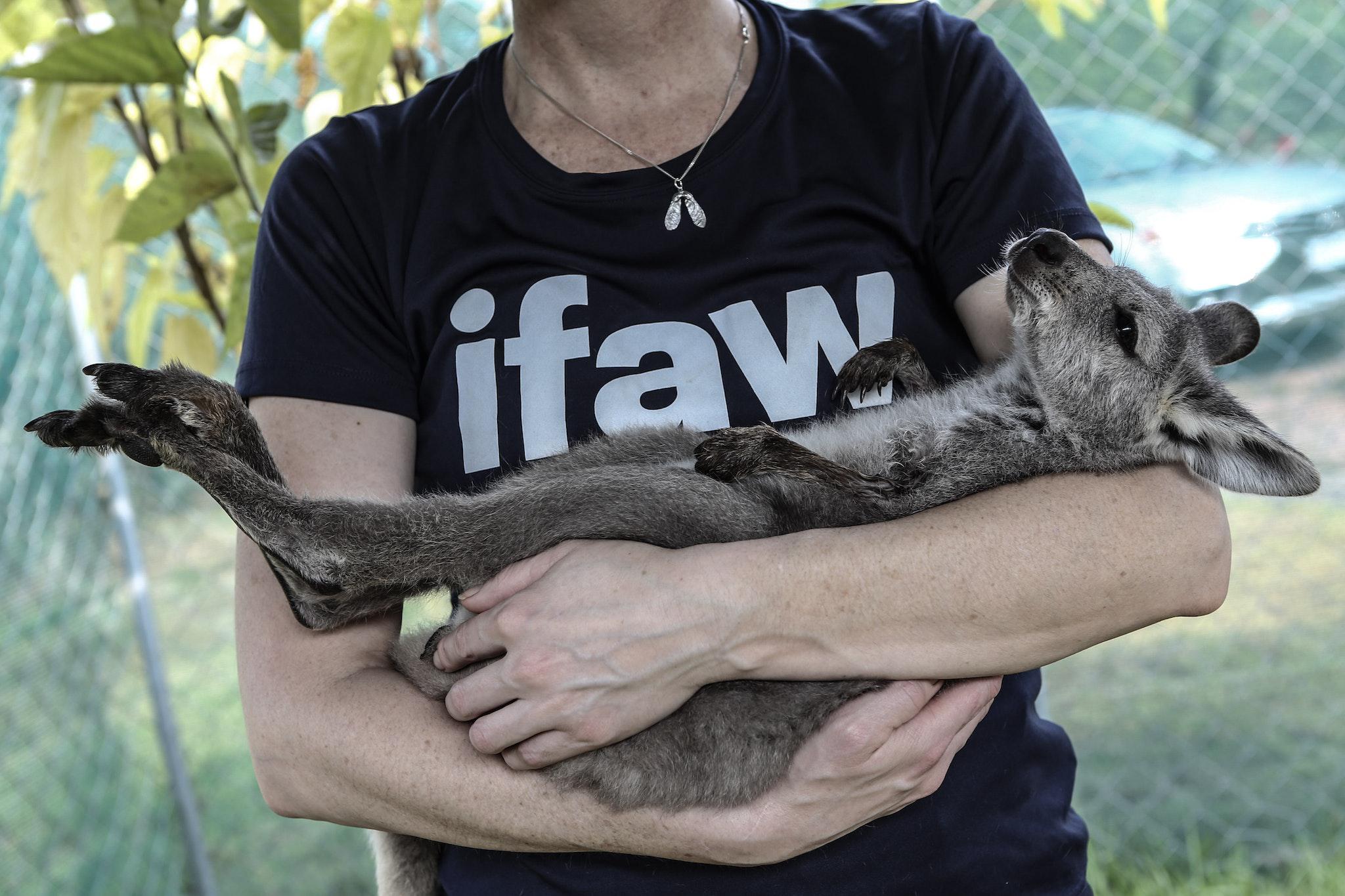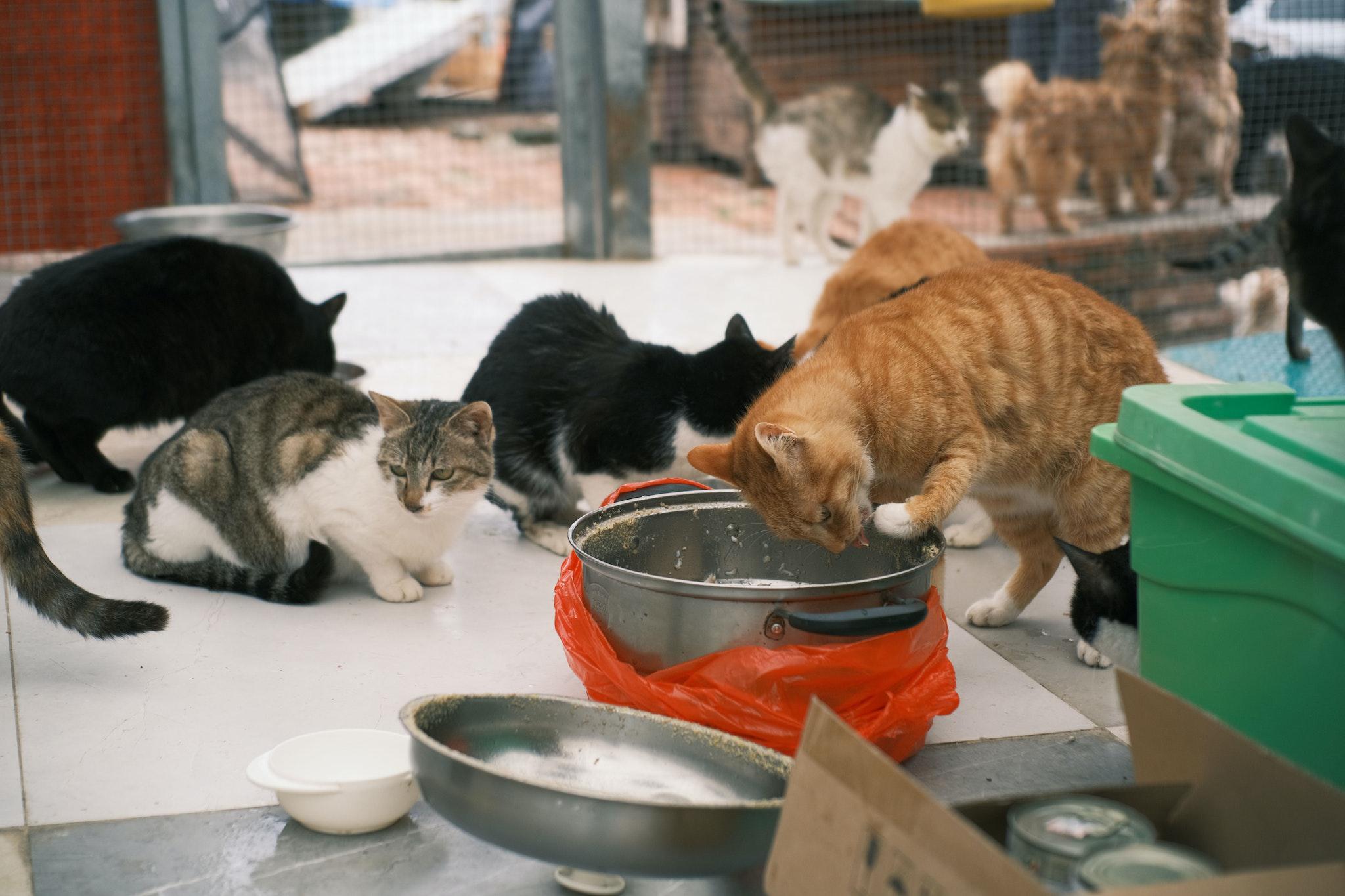Finding Fulfillment Through Animal Welfare Volunteer Work
Volunteering at an animal shelter or wildlife rehabilitation center can be an incredibly rewarding experience. Not only does it allow you to make a meaningful difference in the lives of animals in need, but it can also provide a sense of purpose, community and personal fulfillment.
Are You Looking for Volunteer Opportunities?
Sign up for free at Animal Connect and find the latest opportunities for volunteering in your area.
The Benefits of Animal Welfare Volunteer Work
Here are some of the main benefits that volunteering for animal welfare organizations can provide:
- Helping animals in need - By volunteering, you directly contribute to improving the lives of homeless, abused or injured animals. Tasks like socializing, exercising, grooming and training animals help prepare them for adoption.
- Learning new skills - Animal shelters provide training on things like animal handling, healthcare, enrichment and more. You can build experience that may be useful for a future career working with animals.
- Making connections - Volunteering allows you to meet like-minded people in your community. You can build relationships with staff members and fellow volunteers who share your passion.
- Feeling productive - Spending time doing meaningful work that helps others gives a sense of purpose and achievement. Volunteering can provide a satisfying way to spend your free time.
- Exploring interests - Caring for different types of animals can help you determine what type you connect with best. The experience can guide decisions about pets, education or even a future career path.
- Health benefits - Interacting with animals has been shown to reduce stress, lower blood pressure and increase levels of serotonin and dopamine. Volunteering can improve mental, emotional and physical health.
Animal Volunteer Opportunities
Animal shelters and wildlife rehabilitation centers offer a wide variety of volunteer roles to choose from. Common opportunities include:
- Dog walking - Taking shelter dogs on walks provides exercise and mental stimulation. Additional training and play time also helps make the dogs more adoptable.
- Socializing cats - Shy or scared cats need gentle attention and human interaction so they can get comfortable around people and transition into homes.
- Cleaning enclosures - Keeping animals' living spaces clean is critical to their health and wellbeing. Volunteers can help clean kennels, cages, tanks, litter boxes and bedding.
- Feeding animals - Following proper schedules and dietary needs, volunteers can help feed dogs, cats, small mammals, farm animals and wildlife at various facilities.
- Grooming - Bathing, brushing and trimming nails helps keep animals clean, tangle-free and comfortable as they wait to get adopted.
- Admin/event help - Shelters need assistance with things like answering phones, managing donations, publicity and organizing adoption events and fundraisers.
- Fostering - Providing a temporary home for animals helps free up shelter space and gets the animals into a less stressful environment.
- Transport - Driving animals from overcrowded shelters to those with room helps increase adoption chances. Transport may also be needed for vet appointments.
- Wildlife rehabilitation - Volunteers can help provide food and housing for injured or orphaned wild animals at rehabilitation centers until they can be released.
Making the Time to Volunteer
Finding time to volunteer consistently can be challenging with other commitments like school, work and family obligations. Here are some tips to help make volunteering a regular part of your routine:
- Schedule it - Mark your volunteer shifts on your calendar so you won't double book that time slot. Treat it as an important appointment.
- Start small - Commit to just a few hours a week or month if your schedule is packed. Even a small contribution can make a difference.
- Find flexibility - Look for volunteer opportunities with flexible scheduling options if you have an unpredictable work schedule. Some shelters allow you to just stop by to walk dogs when you have availability.
- Take turns - If the time commitment seems daunting, split shifts with a friend or partner interested in volunteering too. Take turns going each week.
- Include family - Make volunteering quality time spent with your kids or partner. Getting them involved teaches compassion. Many shelters allow kids to volunteer too.
- Maximize lunch breaks - Use part of your lunch break from work to walk shelter dogs or cuddle cats if your job is close enough to an animal welfare organization.
- Make it a habit - After you volunteer for a few weeks, it will start to feel like part of your normal routine. The regularity will make it easier to keep up.
Finding the Right Volunteer Opportunity
With so many types of animal organizations in need of volunteers, it can be overwhelming to choose where to devote your time. Here are some factors to help find the best fit:
- Animal interests - Determining whether you want to work directly with domestic animals, wildlife or a variety of species will help narrow options.
- Time commitment - If your schedule only permits occasional volunteering, look for shelters accepting drop-in volunteers versus those requiring set weekly schedules.
- Skills/experience - Think about your experience handling animals, training credentials and skills that could be useful. Seek out opportunities to apply them.
- Physical ability - Be honest about your physical limitations in regards to animal handling, especially larger, stronger breeds. This will dictate what tasks you can safely perform.
- Location - Minimize travel time and expense by exploring shelters in your immediate local area first before considering those farther away. Proximity also allows more frequent visits.
- Organization mission - Make sure the shelter's philosophies and policies align with your values regarding animal welfare, integrity and ethics.
- Personal reward - Determine what type of gratification you want to gain - for example, playing with baby animals versus seeing adoptions outcomes from your hard work.
- Variety - For broader experiences, seek a shelter that cares for multiple animal types versus a rescue focusing on one species. Larger shelters also tend to have more diverse volunteer roles.
Making an Impact as a Volunteer
While any amount of time donated to animal welfare organizations makes a valuable contribution, there are ways to further increase your impact through volunteering:
- Volunteer regularly - The more consistent you are, the more the staff and animals will benefit from your help. Establish set days/times you come each week or month.
- Expand your role - After you have some experience, ask about taking on additional specialized responsibilities like foster care, fundraising, or mentoring new volunteers.
- Donate supplies - Ask what items are frequently needed like pet food, bedding, toys or office supplies. Collect donations from friends and family too.
- Help promote adoptable animals - Take quality photos of shelter animals and share them on social media to help boost adoption interest.
- Practice patience - Realize progress helping emotionally damaged animals happens gradually. Consistency and compassion matter most.
- Set an example - Demonstrate safe, proper animal handling techniques for new volunteers to learn from and follow.
- Share your experience - Inspire others to volunteer too by sharing how rewarding it has been for you. Emphasize the positive impact it makes.
- Advocate - Use your experience to educate people on animal welfare issues like overpopulation, the importance of spay/neuter, and adopting vs shopping for pets.
The Rewards of Animal Welfare Volunteer Work
Volunteering provides benefits to animals in need and the shelters caring for them. But working directly with animals and being involved in their rescue also yields profound personal rewards for the volunteers themselves. Some of these include:
Gaining New Perspectives
Caring for animals, especially those who have been abused, neglected or abandoned, provides insight into the human condition - our strengths, frailties and potential for compassion. Volunteering fosters understanding, patience and hope.
Forging Connections
The shared experience of helping animals in need brings volunteers together around a common purpose. Close bonds form between fellow volunteers and shelter staff united by the work.
Developing Skills
Volunteer work builds tangible skills like animal handling and care as volunteers are trained by shelter staff. Volunteers also strengthen intangible skills like communication, empathy and problem solving.
Finding Meaning
Contributing time to something outside yourself that has clear moral purpose brings significance and fulfillment. Choosing to be part of the solution gives life deeper meaning.
Getting Perspective
The day-to-day stresses and demands of regular life fade into the background during time spent volunteering. The positive focus restores proper perspective.
Experiencing Joy
Simply being around animals' innocence, playfulness and capacity for resilience, especially given difficult circumstances, brings immeasurable joy. Their hearts lift yours. Volunteering one's time to help animals and animal welfare organizations benefits more than just the recipients of such compassion. Those who give of themselves reap profound personal rewards too. There are few avenues more fulfilling than dedicating your talents and time towards the noble cause of helping animals in need.
Are You Looking for Volunteer Opportunities?
Sign up for free at Animal Connect and find the latest opportunities for volunteering in your area.




